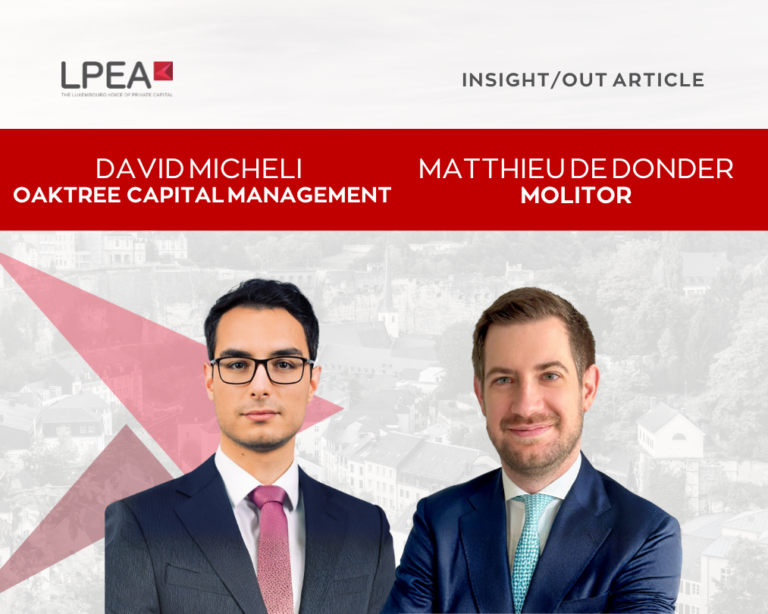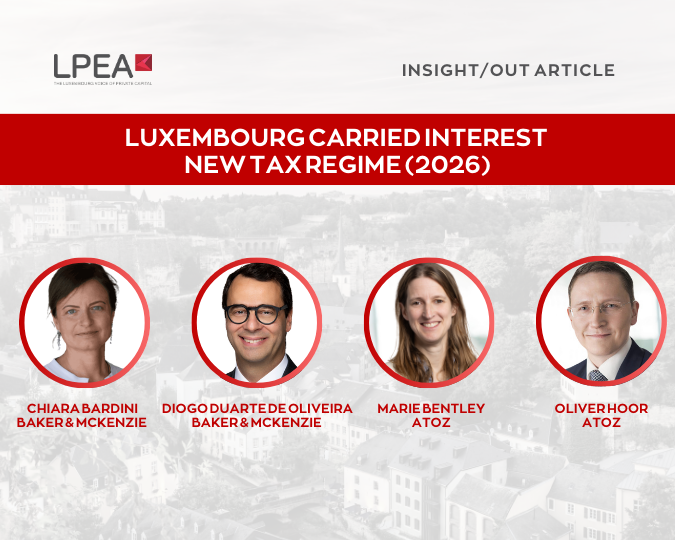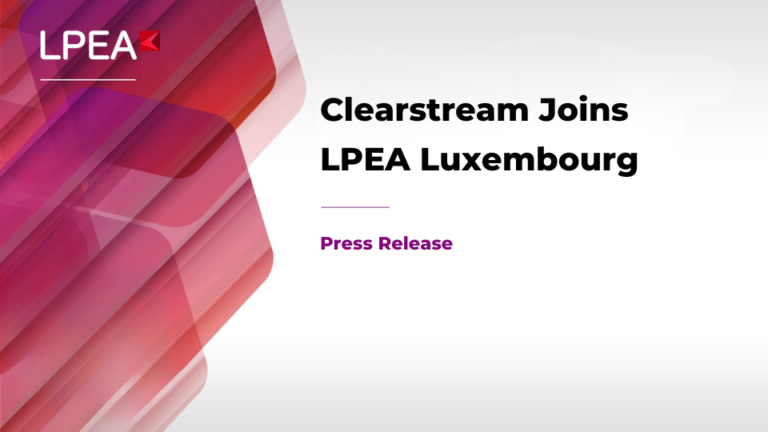Arnaud Bon, Director, Deloitte
Philippe Theissen, Consultant, Deloitte
The New Luxembourg LPs: Private banking and family office clients increase their interest for private equity investments
by Arnaud Bon (Director) and Philippe Theissen (Consultant, Deloitte Luxembourg
This positive trend has increasingly attracted the attention of private banking and family office clients over the past years. Beyond the high performance continuously displayed by top performer private equity managers, private clients have turned towards alternative investments, in search of increased portfolio diversification. The low correlation of private equity with traditional assets benefits their portfolio’s risk adjusted performance, particularly in today’s market environment characterised by high valuations and volatility of stocks, and bond yields that are bottoming out. But beyond the financials, it is their entrepreneurial mind-set that stimulates many of the HNWI and UHNWI to invest into private equity. They want to create a bond with the companies they invest in, analyse the firms’ activities and closely follow how the managerial and operational transformations drive the business forward and generate value over time. Finally, with the influx of millennial entrepreneurs in the asset management clientele, investment expectations are changing. Millennials have grown up in a technology driven world with successful start-ups such as Uber or Spotify directly affecting their everyday life. This has stimulated their desire to be part of the “next big thing”. Thus, beyond a financial return, they look for investments in businesses they believe in and are often less likely to shy away from the typical private equity risk factors.
Although foundations and pension funds still make up the largest proportion of investors in private equity globally with respective 14% and 13% of total LP investments (Preqin 2018), family offices are showing a growing appetite for the asset class and now accounts for 10% of fund raising in 2018 versus 5% in 2013. They furthermore found that the proportion of aggregate capital invested in private equity by wealth managers and family offices doubled over the past five years to reach 4% in 2018. Often facing low investment constraints and investing for the next generation, the UHNWI generally have long-term investment horizons and can thus dedicate a significant share of their assets to private equity.
Private clients have three main options to invest into private equity:
HNWI with investable assets of up to EUR 10 million often prefer indirect private equity investments. A single commitment in a fund of private equity funds indeed enables the investor to be exposed to a diversified investment portfolio with a generalist or sector/geography specific strategy, while benefiting from the expertise of a team dedicated to fund manager selection – a generally under-estimated complex and specialised activity. Furthermore, depending on the size and nature of the fund of funds, this may be the only route to – indirectly – access top performer managers.
Investments in direct funds require a more hands-on fund manager selection approach. However, this is generally performed by the financial advisors of the HNWI. In some instances, UHNWI and single family offices would set up their own investment vehicle with a dedicated PE-specialised selection team and try to diversify the portfolio of underlying fund managers.
Finally, a number of HNWI also pursue direct investments in minority or majority stakes of non-listed companies or taking a minority stake. This approach is most often pursued when investors have a particular interest and/or knowhow in the target’s industry and want to become personally involved in the firm management.
Luxembourg’s business-friendly environment, “first mover” strategy in the implementation of European and international legislation and regulations, and multicultural and multijurisdictional background have supported the country’s development as a private banking centre for decades. More recently, Luxembourg has proven successful in attracting large PE fund managers, positioning itself as a European hub for marketing and regulatory compliance.
As evidenced by market statistics, the private client and private equity industries are not simply co-existing in Luxembourg but leveraging their mutual strengths and presence in Luxembourg. A 2017 survey conducted by Deloitte found that 55% of private equity houses managing funds in Luxembourg raise money from HNWI. Interestingly, while on a global scale funds of PE funds make up only 6.4% of private equity funds (Preqin, 2018), they count for a share of almost 20% in Luxembourg (Deloitte, 2017), largely driven by large private banks establishing indirect PE products for their clients. It can however be questioned whether fund of funds is the one-size-fits-all solution. A number of Luxembourg-based private banks and family offices are reviewing the range of PE investment options they offer their clients, trying to address the usual portfolio construction challenges they face when it comes to alternative assets: diversification, risk-adjusted performance, geography, currency and sector exposure as well as liquidity constraints to name a few.
With its wide and flexible range of fund structuring tools, Luxembourg should be able to encompass the launch of this innovative type of PE products and leverage its position as a convergence point of both industries.
KBL European Private Bankers
KBL provides its clients with access to a range of alternative investment strategies, including private equity, as part of a broader portfolio diversification strategy, reflecting the historically low level of correlation between alternative strategies and traditional asset classes. KBL epb’s Private Equity department was introduced in 1999 with the goal of formalizing the group’s private equity strategy and providing private equity investment opportunities to eligible clients, notably experienced investors who have sufficient knowledge to evaluate the advantages and risks of investing in such illiquid assets. In the last year alone, KBL screened over 100 private placement opportunities, including private equity funds of funds, and primary and co-investments funds, as well as private real estate and debt solutions. Overall, the selection rate remains below 3%. Today, KBL sees special opportunities in mid-cap buyout funds and explores the fund of funds segment as an appropriate means to achieve diversification.
Banque de Luxembourg S.A.
As one of Luxembourg’s leading Private Banks, Banque de Luxembourg S.A., specialized in offering its clients a broad spectrum of investment services, has also positioned itself in the Private Equity Industry. Historically characterized by an attractive return and diversification benefits on a portfolio level, it is clear-cut that Private Equity has also attracted private investors. Moreover, investing in Private Equity is a long-term investment with an entrepreneurial approach which suits certain private investors particularly well. However, in the past, the access to Private Equity funds was usually restricted to institutional investors but driven by this increased interest of private investors, Private Banks set up their own Feeder-Fund structures in order to bundle the commitments of numerous investors together to invest subsequently one single ticket in a Private Equity fund. Banque de Luxembourg S.A. established such an investment vehicle in 2014 enabling its clients to invest in leading Private Equity firms strictly selected by experienced investment professionals.





